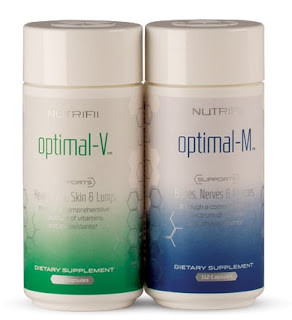Herbs and Spices For A Healthy Digestive System
Seventy percent of the body’s immune system exists in the digestive tract. Therefore, it makes sense to keep the digestive system healthy so that your body can perform its critical immune functions continuously.
One of the best things you can do is eat healthy foods, which can include a variety of different herbs and spices. There are many herbs and spices that are excellent for improving gut health, including the following.
Licorice Root
This is an adaptogenic herb which works in balancing the cortisol levels and in improving stomach acid production. Its ability to regulate cortisol levels is what makes this herb helpful for those people suffering from leaky gut symptoms, which can be triggered and exacerbated by stress.
Licorice root also helps maintain the mucosal lining in the stomach and duodenum. In addition this herb contains glycyrrhizic acid. This helps speed up the healing process of gastric ulcers.
Licorice root is also recommended by some health practitioners for easing the side effects of laxatives.
Ginger
The healing properties of ginger have been used for centuries and it is well-known by many for treating several digestive problems. It contains zingerones and gingerols which have anti-inflammatory properties.
If you are having issues with acne, eczema, psoriasis and any other skin problems, this can be a strong indication that you may have inflammation in your digestive tract.
Another benefit of ginger is that its fiber content functions as a prebiotic that encourages the growth of healthy bacteria in the gut.
Milk Thistle
Flatulence, constipation, bloating, stomach cramps and indigestion are just a few of the many digestive problems that can be relieved through the use of milk thistle. However, keep in mind that milk thistle tea should only be consumed in prescribed quantities.
Milk thistle has earned quite a reputation for improving bile circulation, repairing damaged cells and reducing liver inflammation. All these benefits greatly contribute to the improvement of a person’s overall digestive health.
In addition, milk thistle has demulcent properties that moisturize and soften mucous membranes. Thus, it calms the digestive system while also healing inflammation on the intestinal walls.
Peppermint
Some people swear by peppermint for digestive problems, whilst some health advocates do not recommend it.
Peppermint possesses antispasmodic and relaxant properties that have been found to help relieve gastrointestinal cramps and spasms. This muscle relaxation allows painful digestive gas to pass, giving relief from flatulence and bloating.
This herb has volatile oils that stimulate the gallbladder and enable it to release bile, which is needed for digesting fats.
The compounds present in peppermint tea have been found to improve the flow of bile to the liver. A moderate intake of peppermint tea also helps detoxify the liver. A healthy liver is crucial for keeping the digestive system functioning optimally.
However, as stated earlier, some do not recommend you take peppermint, especially if your problems are in the upper reaches of the digestive tract, such as with heartburn. Peppermint relaxes the sphincter muscle which closes off the stomach and allows acid to go back into the esophagus. Consequently, the symptoms of heartburn or GERD may worsen.
Yet you may have noticed, there are many OTC products that are designed to relieve heartburn and a major ingredient is peppermint. So, we’ll let you decide what works for you.
Cardamom
Cardamom is another spice that works for easing heartburn, irritable bowel syndrome, and intestinal spasming. It is also found effective in providing relief from constipation and intestinal gas.
Its strong aroma activates the taste and other sensory elements, increasing salivation and making for easier digestion. It improves the efficiency of enzyme secretion, further improving digestion. Cardamom is helpful if you consume it after having a heavy meal, although your gut will thank you more if you don’t overload it in the first place!
Coriander Seed
Coriander seeds possess aromatic flavors, brought about by its essential volatile oils and fatty acids. Dried coriander seeds have important fatty acids such as linoleic, petroselinic, palmitic and oleic acids. Together, these essential oils provide anti-flatulent and carminative effects that are beneficial for digestive health.
Coriander is also a good source of dietary fiber. A hundred grams of coriander seeds contain 41.9 grams of fiber. This dietary fiber adds bulk to the food by absorbing more water which leads to smoother bowel movements. The fiber composition of coriander also works together with flavonoid antioxidants to prevent the development of cancer in the colon mucosa.
Cumin Seed
Cumin contains a compound called thymol which is helpful in stimulating the glands for improved production of bile, acids and other enzymes. This results in improved digestion, and because cumin seeds are high in fiber content they are beneficial for those suffering with hemorrhoids.
Cumin seeds also have the ability to prevent gas formation in the gastrointestinal tract and help combat the symptoms of flatulence.
These herbs and spices are often used in medications to help with digestive health problems, both pharmaceutical and alternative medicine. However, a more natural and holistic approach is simply to utilize them more regularly in home-prepared meals.
One of the best things you can do is eat healthy foods, which can include a variety of different herbs and spices. There are many herbs and spices that are excellent for improving gut health, including the following.
Licorice Root
This is an adaptogenic herb which works in balancing the cortisol levels and in improving stomach acid production. Its ability to regulate cortisol levels is what makes this herb helpful for those people suffering from leaky gut symptoms, which can be triggered and exacerbated by stress.
Licorice root also helps maintain the mucosal lining in the stomach and duodenum. In addition this herb contains glycyrrhizic acid. This helps speed up the healing process of gastric ulcers.
Licorice root is also recommended by some health practitioners for easing the side effects of laxatives.
Ginger
The healing properties of ginger have been used for centuries and it is well-known by many for treating several digestive problems. It contains zingerones and gingerols which have anti-inflammatory properties.
If you are having issues with acne, eczema, psoriasis and any other skin problems, this can be a strong indication that you may have inflammation in your digestive tract.
Another benefit of ginger is that its fiber content functions as a prebiotic that encourages the growth of healthy bacteria in the gut.
Milk Thistle
Flatulence, constipation, bloating, stomach cramps and indigestion are just a few of the many digestive problems that can be relieved through the use of milk thistle. However, keep in mind that milk thistle tea should only be consumed in prescribed quantities.
Milk thistle has earned quite a reputation for improving bile circulation, repairing damaged cells and reducing liver inflammation. All these benefits greatly contribute to the improvement of a person’s overall digestive health.
In addition, milk thistle has demulcent properties that moisturize and soften mucous membranes. Thus, it calms the digestive system while also healing inflammation on the intestinal walls.
Peppermint
Some people swear by peppermint for digestive problems, whilst some health advocates do not recommend it.
Peppermint possesses antispasmodic and relaxant properties that have been found to help relieve gastrointestinal cramps and spasms. This muscle relaxation allows painful digestive gas to pass, giving relief from flatulence and bloating.
This herb has volatile oils that stimulate the gallbladder and enable it to release bile, which is needed for digesting fats.
The compounds present in peppermint tea have been found to improve the flow of bile to the liver. A moderate intake of peppermint tea also helps detoxify the liver. A healthy liver is crucial for keeping the digestive system functioning optimally.
However, as stated earlier, some do not recommend you take peppermint, especially if your problems are in the upper reaches of the digestive tract, such as with heartburn. Peppermint relaxes the sphincter muscle which closes off the stomach and allows acid to go back into the esophagus. Consequently, the symptoms of heartburn or GERD may worsen.
Yet you may have noticed, there are many OTC products that are designed to relieve heartburn and a major ingredient is peppermint. So, we’ll let you decide what works for you.
Cardamom
Cardamom is another spice that works for easing heartburn, irritable bowel syndrome, and intestinal spasming. It is also found effective in providing relief from constipation and intestinal gas.
Its strong aroma activates the taste and other sensory elements, increasing salivation and making for easier digestion. It improves the efficiency of enzyme secretion, further improving digestion. Cardamom is helpful if you consume it after having a heavy meal, although your gut will thank you more if you don’t overload it in the first place!
Coriander Seed
Coriander seeds possess aromatic flavors, brought about by its essential volatile oils and fatty acids. Dried coriander seeds have important fatty acids such as linoleic, petroselinic, palmitic and oleic acids. Together, these essential oils provide anti-flatulent and carminative effects that are beneficial for digestive health.
Coriander is also a good source of dietary fiber. A hundred grams of coriander seeds contain 41.9 grams of fiber. This dietary fiber adds bulk to the food by absorbing more water which leads to smoother bowel movements. The fiber composition of coriander also works together with flavonoid antioxidants to prevent the development of cancer in the colon mucosa.
Cumin Seed
Cumin contains a compound called thymol which is helpful in stimulating the glands for improved production of bile, acids and other enzymes. This results in improved digestion, and because cumin seeds are high in fiber content they are beneficial for those suffering with hemorrhoids.
Cumin seeds also have the ability to prevent gas formation in the gastrointestinal tract and help combat the symptoms of flatulence.
These herbs and spices are often used in medications to help with digestive health problems, both pharmaceutical and alternative medicine. However, a more natural and holistic approach is simply to utilize them more regularly in home-prepared meals.



Comments
Post a Comment